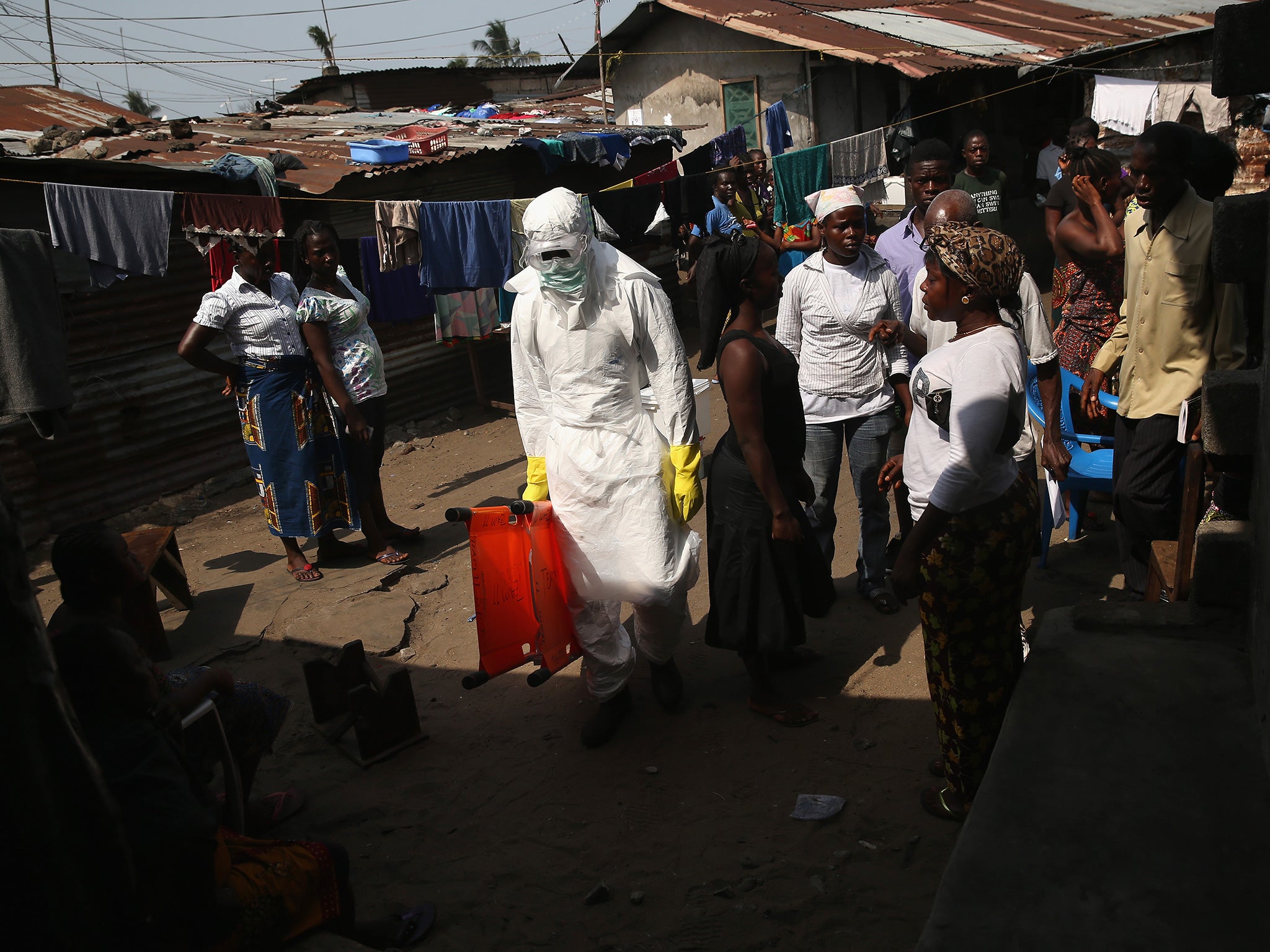The Independent's journalism is supported by our readers. When you purchase through links on our site, we may earn commission.
How the cost of Ebola damaged the entire African economy
Das Capital: Travel bookings to African nations thousands of kilometres from the outbreak fell by up to 70 per cent, and the nations hardest hit will take decades to rebuild

Short memories and shorter media cycles mean that the West African Ebola crisis is now considered ‘fixed’. Several countries have been now declared free of the disease. But the recent outbreak of Zika provides a reminder of the cost of major outbreaks of serious infectious diseases.
First, the direct costs of containing and controlling the outbreak are significant. The humanitarian and medical aid costs of the West African Ebola crisis has run into billions of dollars. A 100-bed isolation facility costs around US$1-1.5 million or about US$10,000-15,000 a bed. It requires trained medical staff; Sierra Leone alone needed 750 additional doctors and 3,000 more nurses. These must be sourced from foreign countries, diverting resources.
Longer term, development of vaccines and prevention or treatment programmes becomes a significant recurring cost. One of the most insidious aspects of Ebola was the infection and death of West African health care professionals, already in limited supply. Rebuilding the health infrastructure is likely to be slow and expensive.
Second, the indirect costs are equally great. Epidemics reduce economic activity and trade as businesses cannot operate normally and movement of goods and people becomes difficult. In the affected regions, large numbers of the population fled or were cut off by quarantine, disturbing food production. In Liberia, the rice harvest fell 25 percent due to the lack of workers and fear of congregating in groups.
This results in problems of food security in primarily subsistence agriculture based economics. The UN Food and Agriculture Organisation estimated that more than 1 million people were affected. Development agencies have been forced to intervene to assist the 3 most affected countries to rebuild their agricultural systems.
Falling production and availability also affects those not directly involved, increasing prices of basic items like food. Restrictions on movement, as transport links are suspended, and the fear of exposure to pathogens also affect economic activity, resulting in loss of revenues. Tourism is directly impacted, with falls of about 75 per cent in visitors. Businesses, dependent on foreign skills, were affected as many firms scaled back or shut operations, withdrew non-essential personnel and deferred new investment.
Public finances are badly affected. Slower economic activity has an immediate decrease in tax revenues and rising spending to deal with the epidemic. The long term damage may be substantial reducing potential growth.
Victims suffering permanent disability may require treatment or support. Orphaned children need care. Where the necessary support does not exist, the responsibility falls on family members and relatives indirectly reducing output. The diversion of limited funds can quickly reverse development gains and general health improvements.
The World Bank’s initially estimated the economic impact at over US$30 billion for Guinea, Liberia and Sierra Leone. This was later downgraded to US$3-4 billion, still highly significant relative to total combined GDP of around US$50 billion. A single episode also weakens the position of poorer countries, making them vulnerable to another outbreak.
Third, epidemics in poor and volatile countries with poorly developed institutions, infrastructure and processes also feed political instability. Guinea has been plagued by military coups and civil strife. Sierra Leone and Liberia are recovering from civil war.
The damage extends beyond the affected geographical region. Ironically, effective control of diseases like Ebola requires age-old techniques such as isolation and quarantine (invented by Italian city states in the 14th century). This necessitates expensive, rigorous screening and closure of borders. The impediment to travel affects trading and cripples global supply chains, accelerating the economic damage. Fear of contagion also reduces travel, socialising and normal activities.
Despite the fact that only five of 54 African countries reported actual case of Ebola, the economic effects of the epidemic affected the entire continent. The International Monetary Fund cut its growth forecast for economic growth in sub-Saharan Africa to 5 percent from 5.5 percent, citing “economic spillovers” from the outbreak.
Businesses that kept operating incurred additional costs to isolate their operations. Remote mines built buffers and restricted access to sites. Those that could not isolate themselves, such as retail operations, were forced to implement strict hygiene controls. Many foreigners left reducing the availability of skills, in part because of the lack of local treatment or evacuation options if they fell ill.
Corporate events were cancelled. Investors and businesses suspended investment and trips to the continent. Tourism, an important activity and source of foreign exchange, was affected. Travel bookings across Africa fell by up to 70 per cent. Key destinations in Eastern and Southern Africa, thousands of kilometres from the site of the outbreak, were nevertheless hit with cancellations.
Even African football was affected. The African Cup of Nations was relocated, after Morocco refused to host the event fearing the spread of the virus at large gatherings. Airlines suspended flights as people eschewed travel in fear of infection in what one commentator termed “an epidemic of ignorance”. Major disease outbreaks have huge and ongoing costs, even after they are deemed to be resolved.
Satyajit Das is a former banker. His latest book, 'A Banquet of Consequences', will be published in April




Join our commenting forum
Join thought-provoking conversations, follow other Independent readers and see their replies